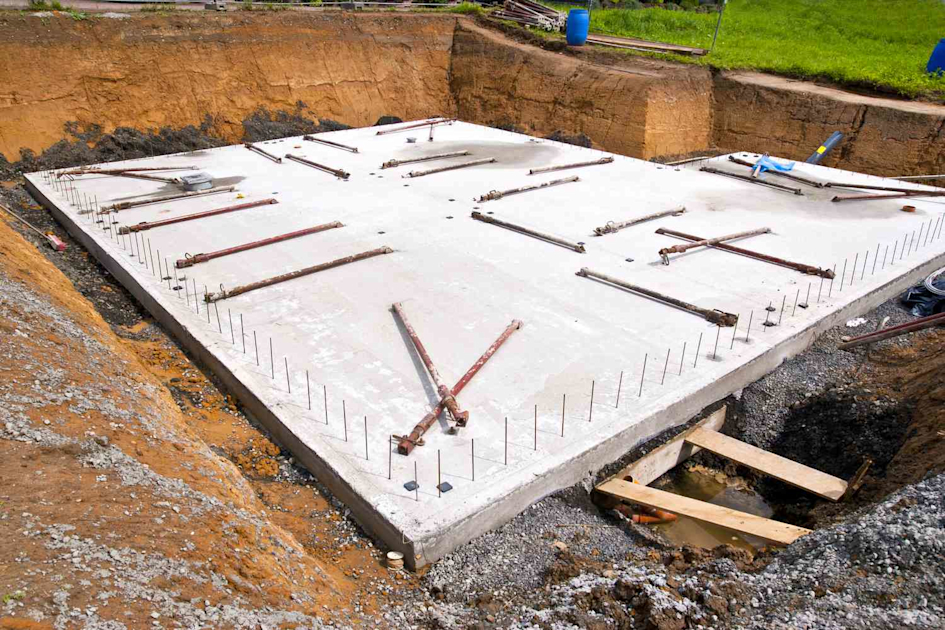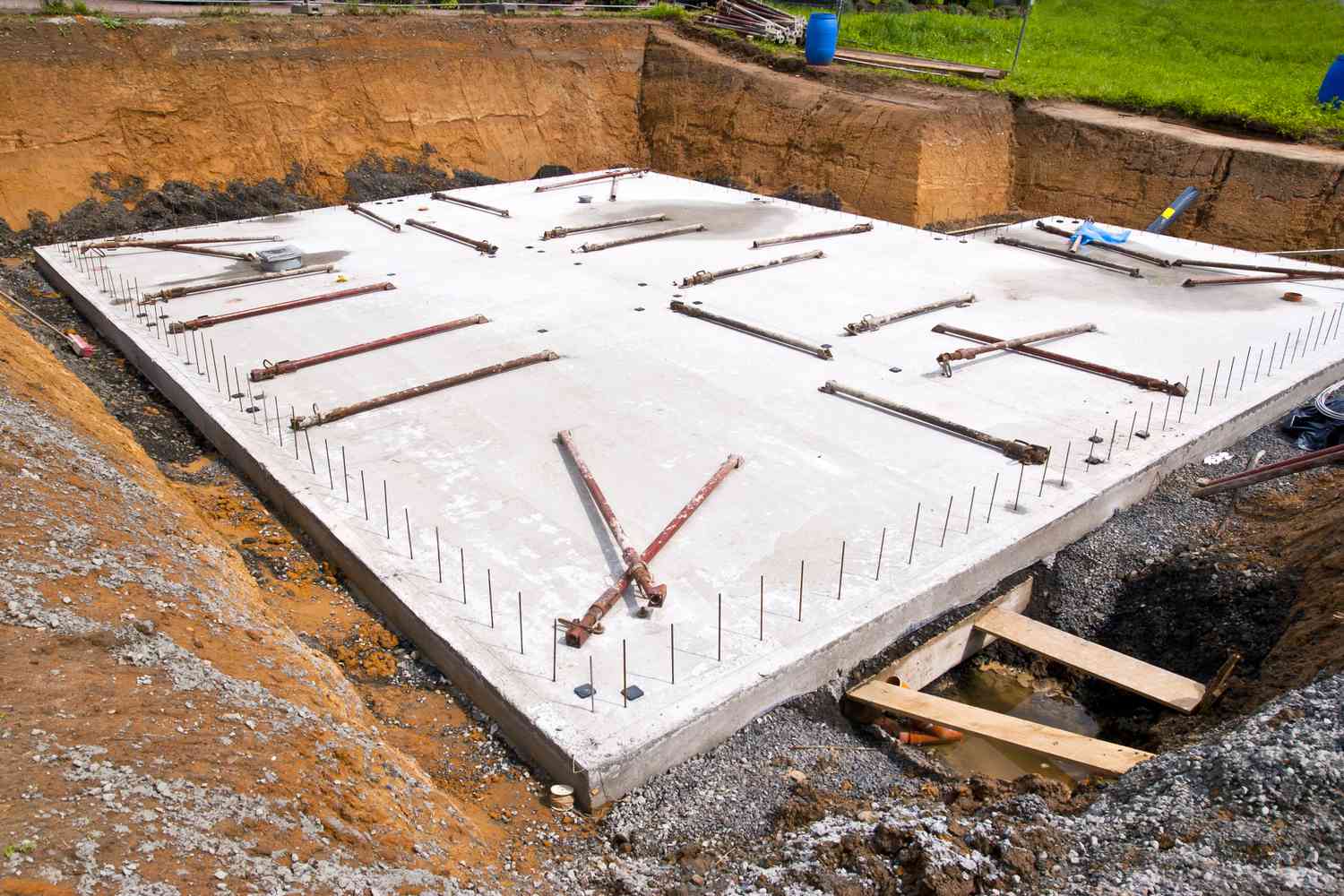Building a new home is always thrilling, but deciding on the foundation, the bedrock of your house, can be challenging. Unmistakably, the choice of foundation significantly impacts the long-term stability and durability of the property. Hence, understanding the different types of foundations for houses is crucial. Whether you are a homeowner, builder, or investor, our comprehensive guide will help you understand the different foundations types, their advantages, and when to use each one.
The Importance of House Foundations
A foundation's primary function is to offer stability to the house by distributing the structural load evenly across the soil or rock on your property. An appropriately designed foundation inhibits any potential tilting, shifting, or significant structural damages caused by natural phenomena such as floods, earthquakes, or soil erosion. Besides structural support, foundations also help in isolating the building from moisture, insects, and harmful soil gases.
The Three Main Types of House Foundations
1. Full Basement Foundation
A full basement foundation is a popular selection, particularly in colder regions where the foundation must be placed below the frost level. Featuring walls that enclose a concrete slab, these types of belvedere typically provide an extra floor of living space, often used for utility space and storage. They are built deep enough that the space can have windows and often are 8 feet high which makes it ideal living space. Depending on your property's soil condition and the local climate, you might need to insulate the basement walls.
2. Slab Foundation
Slab foundations, sometimes referred to as 'on grade foundations,' are typically used in regions with a warmer climate. It is an economical choice compared to other foundation types. They consist of a single layer of concrete poured onto the ground. This type of foundation is preferred due to its cost-effective and speedy instillation. However, slab foundations do not provide any additional living or storage space and can potentially pose challenges with plumbing.
3. Crawlspace Foundation
Crawl space foundations, or raised foundations, create a gap between the soil and the bottom of the house. This foundation type is typically built 1 to 2 feet off the ground, just high enough for someone to crawl under. Raised foundations are used to avoid dampness on the ground and are popular in areas with heavy clay content in the soil. They provide easy access to utilities and improve protection from pests but they have limited storage capacity.
Specialized Types of House Foundations
4. Pile Foundations
Pile foundations are used when the top layers of soil are too weak to support the load of the building. Long and slender columns, known as piles, are driven down to the stable soil or rock layers. Houses built near large bodies of water commonly use pile foundations. Their ability to resist loads from natural movements makes them suitable for earthquake-prone regions as well.
5. Pier Foundations
Similar to pile foundations, pier foundations are used when the house requires elevated support. They are constructed with individual footings placed at strategic load-bearing points rather than continuous walls. This type of foundation is commonly used for additions or detached structures, like a shed or garage.
Understanding the types of foundations for houses is vital when planning to build a new home or invest in one. Depending on factors like the type of soil on your property, local climate, and budget, choose the one that best suits your needs. Each type has its pros and cons, but the correct one can offer optimal support and durability to your dream home. Always work with professionals in making these significant decisions to ensure the long-term stability of your house.
FAQ: Types of Foundations for Houses
Understanding the types of foundations for houses is essential when building, buying, or selling a house. Different types of foundations offer various benefits and potential drawbacks. This FAQ guide provides a comprehensive look into house foundations, considering questions related to the most common types, installation process, costs, and more.
1. What exactly is a house foundation?
A house foundation is the structural base that supports a house over the ground. It plays an essential role in weight distribution and stability, preventing gradual sinking or movement of the house due to soil’s natural movements and weather-related changes.
2. What are the common types of foundations for houses?
There are three common types of foundations used for houses.
i. Full Basement Foundation
Full basement foundations are one of the most common types of foundations for houses, especially in colder climates where foundations need to be built below the frost line. This foundation type provides additional living or storage space.
ii. Crawlspace Foundation
Crawlspace foundations, or raised foundations, are built above the ground, usually about two feet high. They are common in damp climates because they help prevent water damage.
iii. Slab-on-Grade Foundation
This type of foundation is a single layer of concrete poured directly on the ground. It works well in warmer climates and locations with high water tables.
3. How are the types of foundations for houses chosen?
The choice of home foundation types largely depends on the local climate, soil type, and homeowner's budget and preference. For instance, the slab-on-grade foundation might be preferred in locations with a high water table, whereas a full basement foundation would be ideal in colder climates.
4. How are house foundations installed?
Installing a house foundation usually involves site excavation, construction of the footings, and then pouring the foundation material (concrete slab, block or poured wall, or piers). The process may vary depending on the type of foundation chosen.
5. What is the average cost of installing the different types of foundations for houses?
The cost of installing a house foundation varies significantly depending on the type of foundation, location, and complexity of the project. A rough estimate could range from $4,000 for a simple slab-on-grade foundation to $15,000 or more for a full basement foundation.
6. Can I change my type of house foundation?
It is technically possible to change a house foundation, but it is typically expensive, time-consuming, and may involve significant structural work and risks. Generally, it's recommended to decide on the right foundation type during the house planning and building phase.
7. How often should houses undergo foundation inspection?
It's recommended to have your foundation inspected every 3-5 years, or immediately if you notice warning signs like cracks, leaks, or doors and windows that no longer close properly.
Understanding the types of foundations for houses ensures you make the right decision that accommodates your home's requirements and withstands your local environmental conditions. If you have further questions, it's best to consult with a professional builder or structural engineer.
Summary
It’s clear that the types of foundations for houses vary widely, and the choice largely depends on the region and its respective climate and soil characteristics. Whether you choose basement, crawl space or slab foundation, each brings its own advantages and potential challenges. Carefully considering the factors can help homeowners make an informed decision for a solid, stable and long-lasting foundation.
Exploring the types of foundations for houses has highlighted the importance of not just choosing a foundation that suits your house design or budget, but also considering the climate, soil and geography of your area. From concrete slab, pier and beam to full basement foundations, each type has its own merits and can significantly affect the cost, durability and maintenance level of your house.
The different types of foundations for houses are indeed critical aspects of any home construction. They literally form the base of your home, and therefore, choosing the right one is incredibly important. Remember, the kind of foundation you select will have a direct impact on the overall stability, longevity, and safety of your house. Your house's specific needs and circumstances will help in determining the most suitable foundation type.
About HouseIdea
Welcome to HouseIdea! We are proudly rooted in the heart of Sacramento, CA, fueled by creativity, innovation, and an untamed passion for transforming ordinary spaces into extraordinary ones. Here at HouseIdea, we believe in pushing boundaries in design and functionality, delivering bespoke home improvement solutions that breathe life into your home. Our dedicated team of seasoned professionals, architects, designers and builders are committed to turning your house into a dreamy living space which mirrors your unique style and personality, one idea at a time. Our expertise ranges from kitchen remodeling projects to full-scale home renovations, offering premium quality services that prioritize customer satisfaction and attention to detail. Dreams do come true at HouseIdea. Welcome to a world of possibilities.
Tags: house foundations, foundation types, home construction,



















